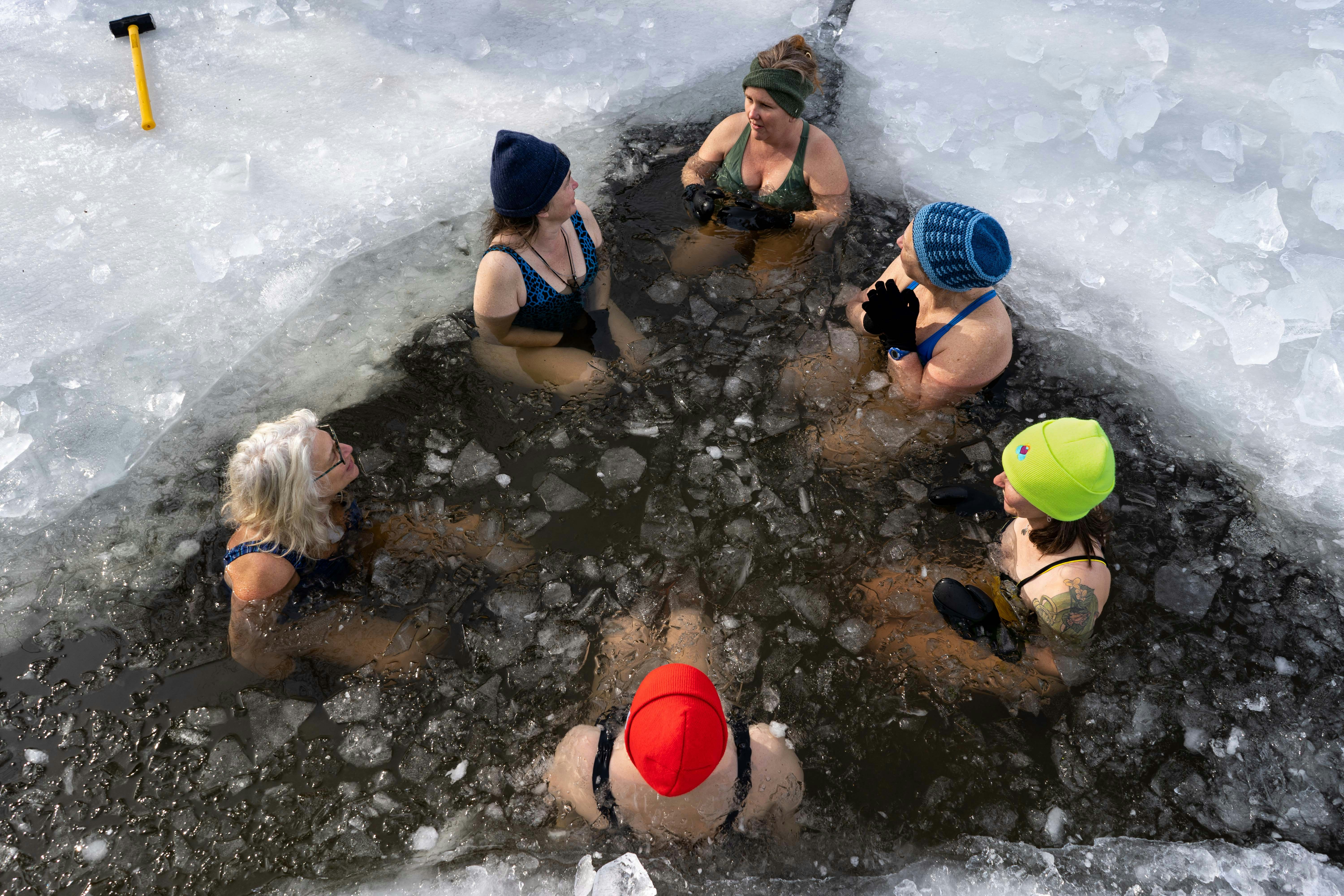News release
From:
Peer-reviewed; Randomized controlled trial; People
Cold water plunges may not speed women’s post-exercise recovery, per new study
Clinical trial assesses hot and cold water plunging effects for 30 women after starting new, unfamiliar workout routine
In a randomized clinical trial with 30 female participants, neither cold- nor hot-water immersion improved recovery from exercise-induced muscle damage. Vanessa Wellauer and colleagues at the University of Applied Sciences and Arts of Southern Switzerland present these findings in the open-access journal PLOS One on May 7, 2025.
New, unfamiliar workout routines can cause excessive microscopic damage to muscles, with an inflammatory response that may lead to longer recovery times with reduced physical performance. Cold- and hot-water immersion are low-cost strategies that might speed muscle recovery through their physiological effects.
However, evidence for the effectiveness of cold- and hot-water immersion is mixed, and few studies have directly compared cold- versus hot-water immersion, particularly in women. To address that gap, Wellauer and colleagues conducted a randomized clinical trial in which all 30 female participants performed the same rigorous exercise routine: five sets of 20 drop-jumps from a 0.6-meter-high box. Each participant was randomly assigned to either no immersion or to immerse up to the sternum in a small inflatable pool of hot or cold water for 10 minutes immediately after exercise and again two hours later.
Analysis of various physiological measurements showed some differences between the cold-, hot-, and no-immersion groups. For instance, 30 minutes post-exercise, cold plungers had lower muscle oxygen saturation values than the other participants, while hot plungers had higher core body temperatures than cold plungers and cold plungers lower core body temperatures than non-plungers.
However, despite these physiological differences, neither cold- nor hot-water plungers had better muscle recovery outcomes than non-plungers, and no significant recovery difference was seen for cold- versus hot-water immersion. Specifically, the researchers assessed recovery by measuring swelling of knee extensor muscles, participants’ muscle-soreness ratings, serum creatine kinase levels, and maximal voluntary isometric contraction before exercise and 24, 48, and 72 hours after exercise. These did not show significant differences between groups.
These findings underscore the complex links between physiological responses and muscle recovery outcomes for women. The authors note that future research could help clarify the mechanisms underlying those links. They also outline additional research directions, such as assessing exercise routines that align more closely with real-world workouts and competitions.



 International
International



